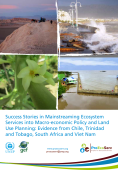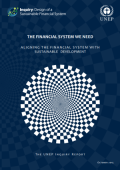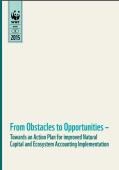Unemployment is a major challenge for Europe. The crisis has led to budget cuts and it has made the socio-economic integration of people who have low educational attainment, low skills, a history of longterm unemployment and who are vulnerable even more difficult. At the same time, environmental degradation, climate change and unsustainable development are amongst the most serious threats that our society has to address; the environmental and health costs often outweighing the gains from economic activity.
The paper investigates the current practices of the green economy, and challenges and opportunities in the Limpopo Province of South Africa. The paper is based on a baseline study designed to gather data from key informants in Limpopo provincial, district and local municipalities. Twenty-three key informants in the province were interviewed. Primary data collected from key informants was supplemented by secondary data from document reviews. Descriptive statistics were used to analyse data on the current practices of green economy, and challenges and opportunities in the province. Findings from the study suggest that there is generally significant awareness of the green economy concept across the provincial district and local municipalities in Limpopo Province. However, there are gaps in terms of information gathering, storage and sharing on green economy activities in the district municipalities, provincial and national departments.

The 'ProEcoServe' project assessed ecosystem services such as the provision of soil retention, shoreline protection, carbon sequestration and pollination, identifying almost US$1 billion of benefits in the four pilot countries of Chile, Trinidad and Tobago, South Africa and Viet Nam. This final report includes the results of a four-year project to develop ecosystem assessment tools and products that decision makers can use to integrate the value of ecosystem services into policy, investment decisions and macro-economic models.


Over the last decade a consensus has been growing that accounting for natural capital and integrating that approach in governmental and business decision-making is an important pillar of global, national, regional, local and corporate conservation efforts. Accounting for natural capital aims to support halting biodiversity loss and avoiding the deterioration of ecosystems and the services they provide that underpin human well-being and economic prosperity. The Global Biodiversity Outlook (GBO-4) published in 2014 states that progress has been made in mapping and assessment of biodiversity, ecosystems and their services and in incorporation of their values into planning processes and strategies. However, there is still relatively little attention given to the integration of natural capital accounting into national reporting and accounting systems.
